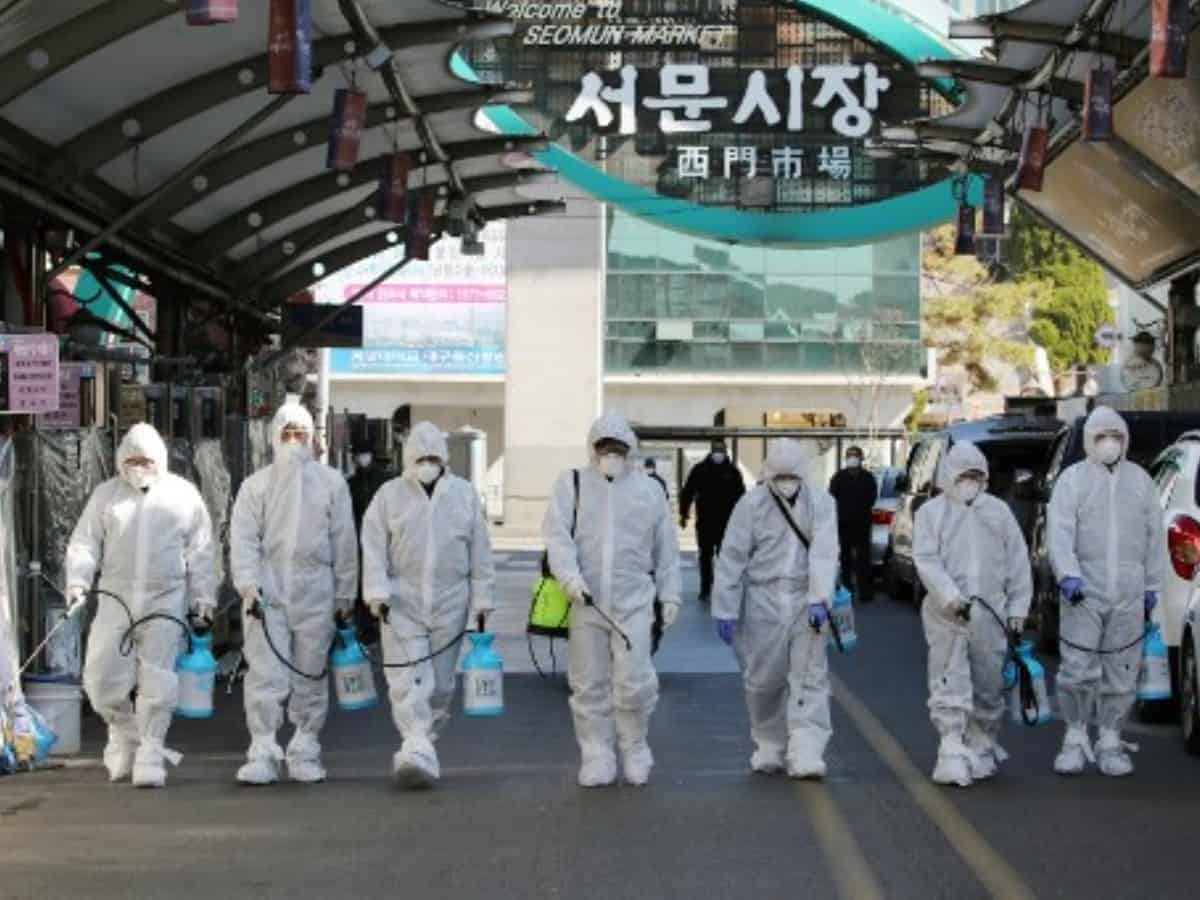Baghdad: New coronavirus cases surged across the Middle East on Friday, after a rapid spread in Iran, where authorities say the death toll from the virus has hit four, prompting alarm and travel bans.
Since December, the SARS-like virus has killed more than 2,200 people in China, the epidemic’s epicentre.
Elsewhere in the world, it has killed over a dozen people and spread across some 27 countries.
In the Middle East, two elderly men in Iran were the first confirmed deaths from the virus, which has also spread to the United Arab Emirates, Egypt, Israel and Lebanon.
Iran’s health ministry Friday reported two more deaths among 13 new diagnosed cases of the COVID-19 virus, doubling the total number of deaths in the Islamic republic and taking the total number of diagnosed infections there to 18.
Hours later, Lebanon confirmed the first case of the novel coronavirus, making it the latest country in the region to be hit by the epidemic.
It was found in a 45-year-old Lebanese woman who had travelled from the holy city of Qom in Iran, Lebanon’s health ministry said, adding that two other cases were being investigated.
Israel on Friday also confirmed its first case in a citizen who flew home from Japan after being quarantined on a stricken cruise ship.
Iraq and Kuwait, which share borders with Iran, were on high alert for a potential outbreak after banning travel to and from the Islamic republic although they have not confirmed any cases domestically.
The outbreak in Iran has raised concerns, especially since many of the coronavirus cases involved residents of Qom, a popular destination for Kuwaiti and Iraqi Shiites.
Shiite leader Moqtada Sadr, a major figure in Iraqi politics, himself studies in an Islamic seminary in Qom.
– Borders closed –
Iraq is a popular destination for millions of Iranian Shiite pilgrims, including religious scholars from Qom, who visit holy sites in the southern provinces of Najaf and Kerbala.
Iran is also the second-largest exporter of goods to Iraq, sending products to the value of around nine billion dollars annually.
On Friday, Iraq’s top Shiite cleric Grand Ayatollah Ali Sistani urged authorities to be ready to stem any outbreak.
“The scale of preparations should match that of the threat,” he said in comments delivered by a representative.
“We call on relevant authorities to be up to the level of responsibility”.
Iraq on Thursday clamped down on travel to and from Iran, as the health ministry announced that travellers from were barred from entering the country “until further notice”.
A senior official told AFP border crossings with Iran had been closed, with only returning Iraqis allowed to enter.
But they would be examined and, if necessary, placed in quarantine for 14 days, the health ministry said.
Iraqis are also not allowed to travel to Iran, the ministry said.
The border closure followed a backlash against a Wednesday announcement of visa waivers for Iranians wishing to travel to Iraq.
Iraqis took to social media using the hashtag “close the border” and officials called for a ban on the entry of goods and people.
Kuwait Airways on Thursday announced it would suspend all flights to Iran, while ports in the Arab Gulf state would be also to passenger traffic.
Kuwaitis were advised not to travel to Qom, and warned that anyone arriving from the city they would be quarantined.
The UAE health ministry on Friday said a Filipino national and a Bangladeshi man were infected with the virus, bringing to 11 the number of cases in the country.
– Social media storm –
Iraqi airports have been screening travellers for the virus and national carrier Iraqi Airways has suspended flights to Iran.
“Detection equipment has been installed and no cases have been found” Jaafar al-Alaoui, communications officer at Najaf airport, told AFP.
Iraqi passengers arriving from Iran on Friday wore medical masks and had there temperatures taken by airport authorities.
In the southern province of Basra, local officials called for heightened health awareness in schools and recommended that washrooms be sanitised in educational facilities.
Social media networks have become fertile ground for fears among citizens who say Iraq cannot accomodate a coronavirus outbreak.
Hospitals are generally poorly equipped in terms of equipment and medicine, while some still require reconstruction and refurbishment.
There are less than 10 doctors for every 10,000 people, the World Health Organization says.
Iraqis are circulating prayers on social media networks, while videos circulating online show Iraqi and Iranian families lighting incense in their homes with the belief that it will prevent infection.
Some said they were turning to herbalists for natural remedies, while others joked that alcohol consumption could combat the virus.

